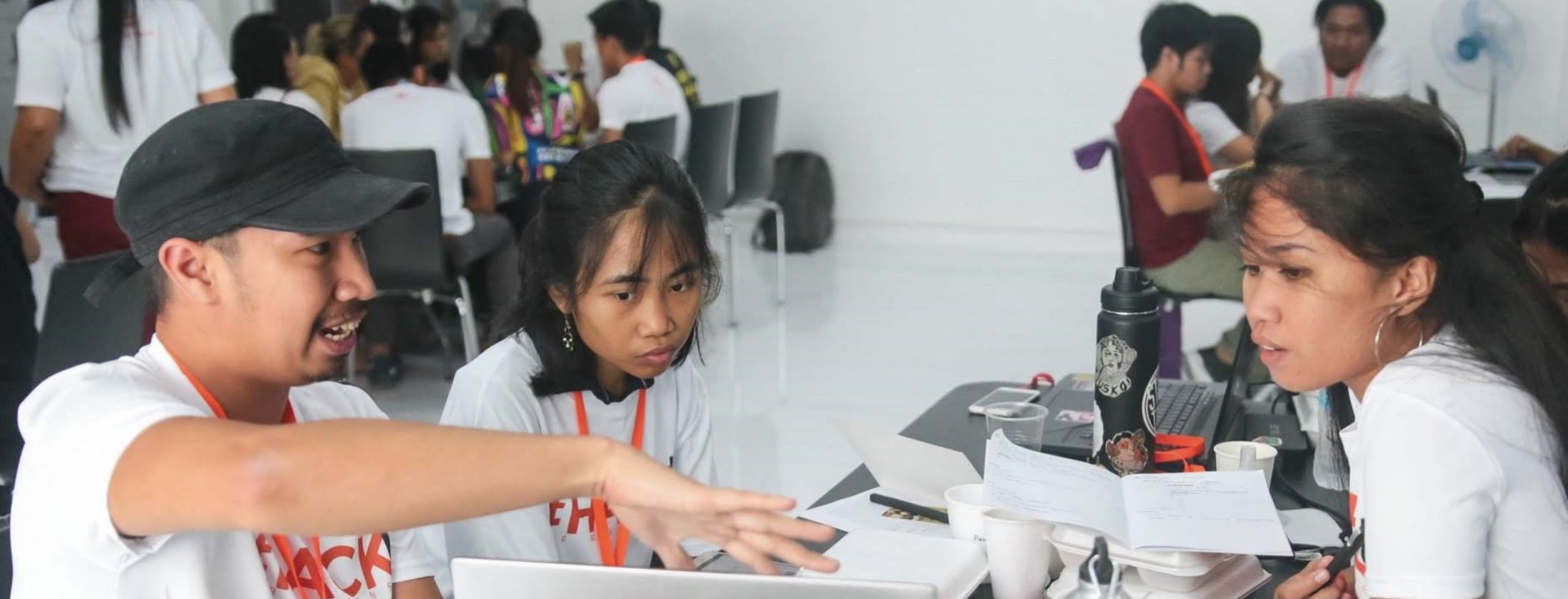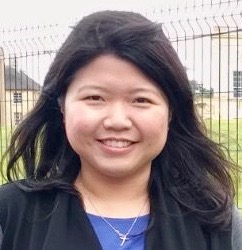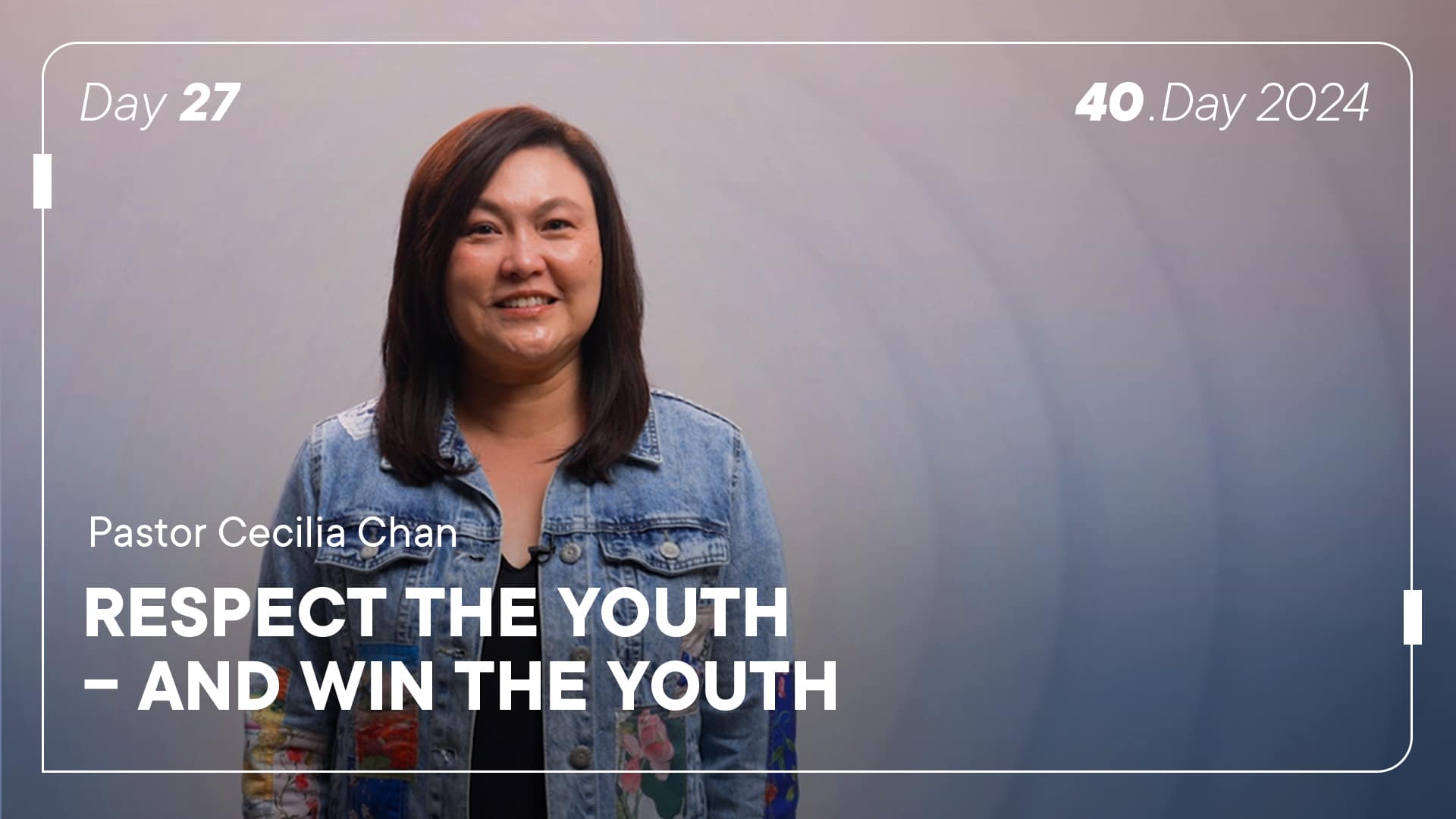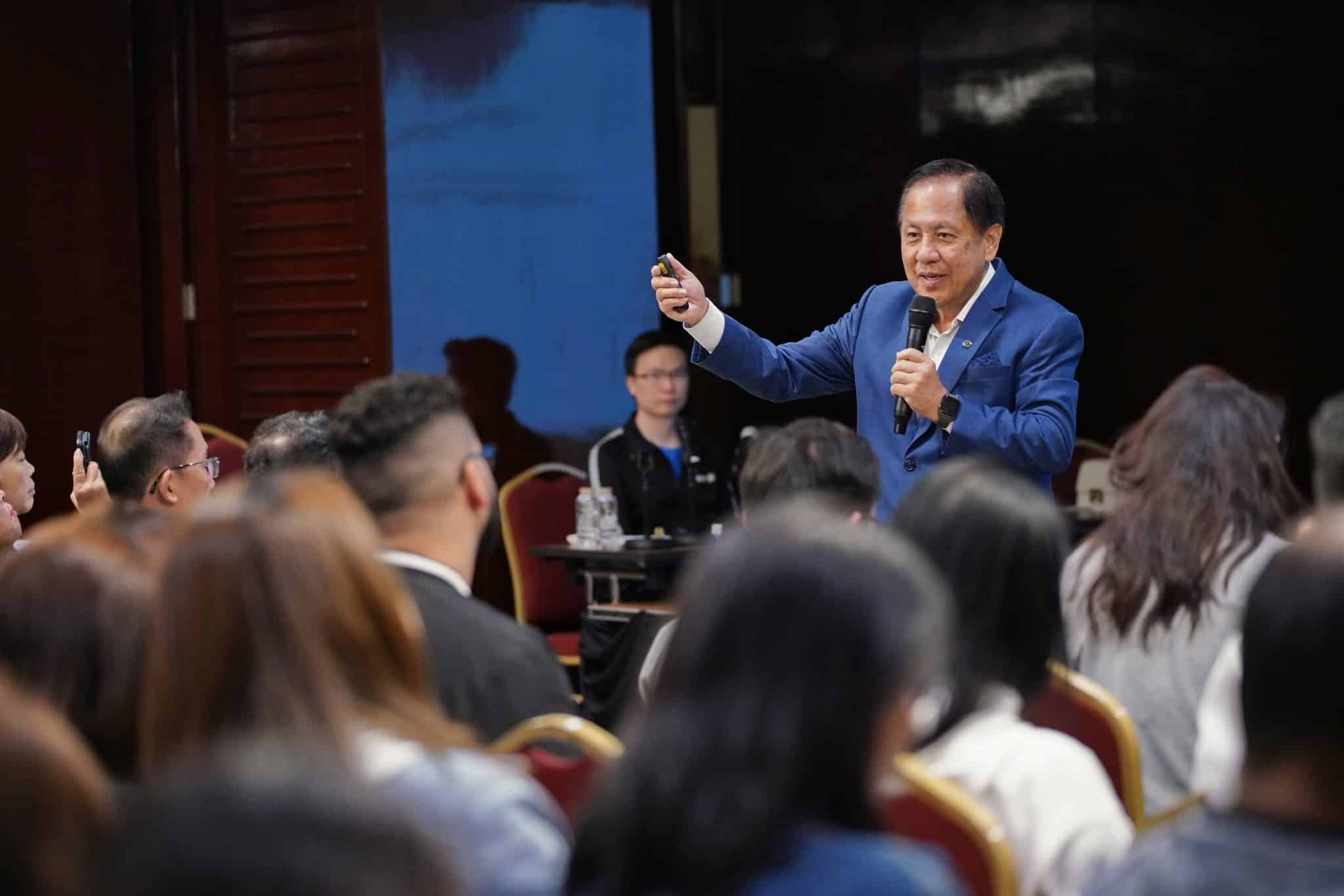
In #HACK2021, hundreds of Christian technologists, creatives, missionaries and strategists in more than 60 locations around the world brainstorm ways technology can take the Gospel further than ever before. Photo of a previous hackathon from hack.indigitous.org.
Germaine Tay, 33, was a cross-culture worker in the Middle East before the pandemic struck. With the onslaught of Covid and with international borders abruptly closed, she pondered what she could do from her base in Singapore.
As God’s ways go, the answer turned out to be: Plenty.
The first idea that popped into her head was making English Language teaching videos, as well as using these videos to connect to the refugees in the Middle East.
Whenever they spoke, he would also ask her for 10 English words to improve his own command of the language.
When Germaine reached out to seek help in adding Arabic subtitles to the videos, she was introduced to a Syrian refugee, Brother D (name withheld due to sensitivities).
Brother D shared Germaine’s heart for bringing education to the people in the Middle East. Whenever they spoke, he would also ask her for 10 English words to improve his own command of the language. A friendship quickly formed between them.
“As I look back at the blueprint I had prepared for the work in the Middle East, I see God fulfilling the plans even though I am not back in the field physically,” said Germaine with wonder.
“I see that technology can be a means to go into more countries … it is not meant to replace the field work but to complement the work on the ground during this period of pandemic.”
No leftovers for God
Germaine’s foray into cross-cultural work was not something she had planned when she’d left her job in a technology company four years ago.
A conversation with her mentor prompted her to think deeper about her next steps. Literally in the shower one day, the Holy Spirit impressed upon her: “Don’t give me the leftovers.”
Armed with fresh conviction, Germaine began the work to which she had heard God call her. As she sought the Lord, He also faithfully showed her His heart.
The Holy Spirit impressed upon her: “Don’t give me the leftovers.”
God opened doors to an education centre in a nearby refugee camp. She got to know the locals through teaching English and became more familiar with their culture and families. Day by day, Germaine became more convinced of the Lord’s purpose for her in the Middle East.
She also saw the need to constantly stay close to the Lord during her time overseas.
“As you spend time with people, you can slip into the ‘same old story again’ mindset. I have to constantly depend on Him to stay sensitive to the needs of the locals and be tender hearted,” she told Salt&Light.
Through her interactions with the locals there, she learnt more about God – his attributes as a Father to the fatherless, particularly to the refugees who were without their parents or loved ones due to the war.
“I felt privileged to be part of this mission to bring the Lord’s love to those who might be hurting,” she said.
Hello in Arabic
After one year in the field, Germaine returned to Singapore. Her plan was to spend a few months with her family before returning to the field.
She had already begun seeking the Lord on the next steps, banking on the advice given by her mentor to consider four key pointers: What is sustainable, scalable, transferable and ultimately what constitutes her ministry’s sweet spot?
All this converged to leveraging on her tech background to empower the refugees through equipping them with digital and English Language skills.
MarHabTech is a technology platform whose name plays on the familiar Arabic greeting: Marhaba (“hello” in Arabic).
This vision was also confirmed when she saw how her English Language teaching videos quickly gained popularity among the locals via Facebook – indicating their hunger to learn English and also how technology could work as a platform for education.
Following a few more rounds of conversations with the locals and her group of friends, Germaine came up with MarHabTech, a technology platform whose name plays on the familiar Arabic greeting: Marhaba (“hello” in Arabic).
MarHabTech aims to be an online platform that consolidates various tech outreach efforts, including access to educational content as well as a place to connect subject matter experts.
Germaine stressed the importance of continually checking in with the locals as she refines the ideas and objectives behind MarHabTech.
“For any initiative that I have, I believe that it is important to bounce ideas off the locals and to seek their thoughts. Anything that we are aiming to introduce must remain relevant to them and must ride on what they already know,” she told Salt&Light.
For instance for MarHabTech, this means tapping on Facebook, as most of the refugees are already familiar with the platform, thus reducing friction when getting them onboard.
Taking the Gospel further than ever
Germaine will be taking part in the upcoming virtual Indigitous Hackathon as a challenge owner.
“God will never waste any talents or skills we have and is able to use them for His good.”
She aims to solicit “locally relevant” and sustainable solutions to provide accessible learning to the refugees.
At present, some of the obstacles she has faced includes weak wifi in the refugee camps and the heavy content in English Language teaching videos, which might result in a lag in streaming or downloading.
She strongly believes that God is raising up tech people during this pandemic season to advance His kingdom.
“God will never waste any talents or skills we have and is able to use them for His good. Tech skills are very important in outreach and connecting with people during this period.”
For her, personally, this pandemic has helped her to see missions in a brand new way.
“We must use tech for the purposes of collaborating and connecting with people. It is never meant to replace the ‘human touch’.”
While she had assumed that not being in the field might weaken the relationships she had built with the locals, she found herself forging even stronger ties with them and making new friends over the past one year, thanks to technology like WhatsApp.
There is also a benefit to her at home. When the locals call her in Singapore, her family is able to gain insights into her work and the people that she has interacted with in the Middle East.
Sometimes she makes video calls, giving her foreign friends a glimpse into her workplace and the Singapore environs.
“Of course, I long to be able to go back (to the field),” she said. “But I am now starting to see that technology allows us to have a hybrid model of missions including both being on the ground as well as in the online space.
“Ultimately, we must use tech for the purposes of collaborating, co-learning and connecting with people. It is never meant to entirely replace the ‘human touch’.”
God can use disruptions
Indigitous #HACK2021 is a global missional hackathon for Christians happening in over 60 cities all around the world.
In the book of Acts, the disciples had to dislodge themselves from the comforts of home to escape the rising persecution arising from the martyrdom of Stephen. Instead of giving in to fear, they continued to preach the gospel where they fled.
“And the hand of the Lord was with them,
and a great number who believed turned to the Lord.” (Acts 11:21)
God can use disruptions to move us to the places we need to be.
In a global pandemic that has disrupted everything from the way we travel, live and interact with others, Covid-19 has most significantly disrupted overseas missions. Many missionaries and tentmakers had to return abruptly to their home countries and rethink how they can continue engaging in their missions in view of the travel restrictions.
As fellow witnesses of the Gospel, the hackathon participants can creatively employ technology and digital media to aid the Church, mission organisations and tentmakers.
“But you will receive power when the Holy Spirit has come upon you,
and you will be my witnesses… to the end of the earth.” (Acts 1:8)
As a digital native, you wield great power. If you would like to join hundreds of Christian technologists, creatives, missionaries and strategists in more than 60 locations around the world, to take the Gospel further than ever before.
When: Fri, Oct 15, 2021, 7:30pm, to Sun, Oct 17, 2021, 5pm (Singapore Standard Time)
Where: Hybrid-Virtual (Zoom) and Onsite (Digital Mission@360), 360 Dunearn Road, Singapore 299552.
Cost: Free for all #HACK2021 participants, but a freewill offering to sustain this voluntary movement is welcome. Here’s how you can contribute via PayNow or Internet banking.
Register for #HACK2021 here.
RELATED STORIES:
New co-working space is looking for the next Facebook to disrupt how we do missions
“Could Big Data be something evangelical?” challenge visionaries Jeff Cheong and Dr Freddy Boey
We are an independent, non-profit organisation that relies on the generosity of our readers, such as yourself, to continue serving the kingdom. Every dollar donated goes directly back into our editorial coverage.
Would you consider partnering with us in our kingdom work by supporting us financially, either as a one-off donation, or a recurring pledge?
Support Salt&Light




